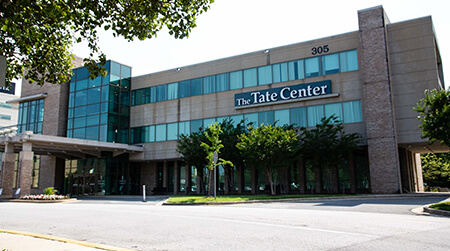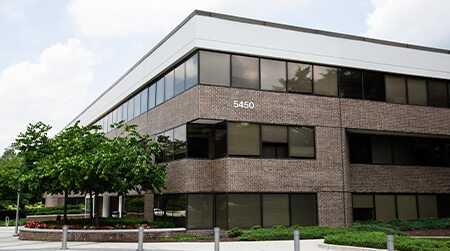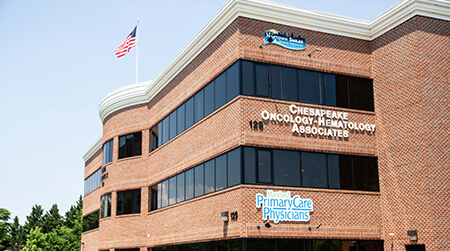


Colorectal cancer often develops slowly over several years without showing any symptoms until the condition is advanced. Therefore, it's crucial to have regular screenings for early diagnosis and treatment, which increases your chances of cure and survival.
At Chesapeake Oncology Hematology Associates, we offer comprehensive cancer care, including diagnosis, treatment, and aftercare, under one roof at affordable prices. Our expert oncologists have over two decades of experience and offer personalized and compassionate cancer treatment. Visit one of our oncology centers in Maryland today for exceptional and affordable colorectal cancer care near you.

We treat various colorectal cancer conditions, including:
Depending on your age, the severity of your condition, and overall health, we may recommend one or more of the following treatment options:
Surgery is recommended for early-stage diagnosis and localized colorectal cancers. We will perform any of the following surgeries depending on the extent and location of your tumor. Typically, the surgery is performed to remove all or part of the colon affected by cancer, nearby lymph nodes, and some surrounding healthy tissues.
It uses intravenous or oral drugs to kill cancer cells, shrink the tumor before surgery, and prevent cancer growth after surgery. We often recommend this when surgery is not an option.
High-energy x-ray beams are used to kill cancer cells. We offer various radiation treatments, including 3D-conformal radiation therapy, Intraoperative radiation therapy (IORT), Intensity-modulated radiotherapy (IMRT), brachytherapy, and proton therapy.
Depending on the extent of your colorectal cancer, it may be either treated with surgery alone or with surgery, radiation, and chemotherapy. Chemotherapy or radiation performed before surgery is called Neoadjuvant therapy, and after surgery is called adjuvant therapy.
Neoadjuvant therapy aims to shrink the tumor while easing the surgery and recovery process. Adjuvant therapy destroys remaining cancer cells and prevents cancer from recurring.
It uses specialized drugs to improve your immune system's ability to recognize and fight cancer cells. It is usually recommended to treat advanced colorectal cancer.

8:00 AM ~ 4:30 PM (M-F)

8:00 AM ~ 4:30 PM (M-F)

8:00 AM ~ 4:30 PM (M-F)
People aged 50 or above or with a personal/family history of colorectal cancer, polyps, or chronic inflammatory bowel disease, are at risk of developing the condition. However, the cancer can also occur in teenagers and young adults.
Common screening options for colorectal cancer include
Having bright red blood in the stool usually indicates that there’s bleeding in the rectum or colon. Although bleeding is the earliest sign of colorectal cancer, other conditions can also cause it. Therefore, visit your doctor for a proper diagnosis.
Eating a well-balanced diet is recommended to prevent colon cancer. Make sure to stay active, maintain ideal body weight, and schedule regular screenings after 50 years of age or earlier if you have a family history of colon cancer. Finally, minimize consumption of alcoholic beverages and quit smoking if you are a smoker. Both smoking and alcohol consumption have been linked to several types of cancer, including colon cancer.